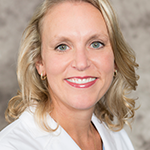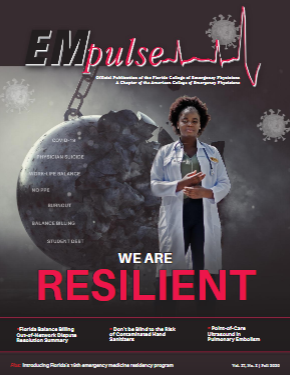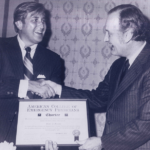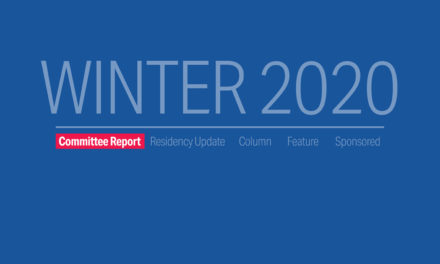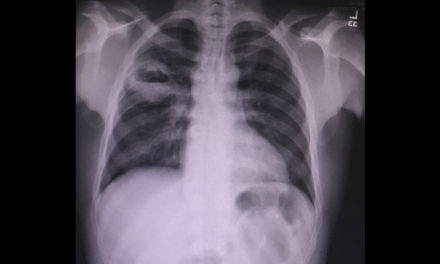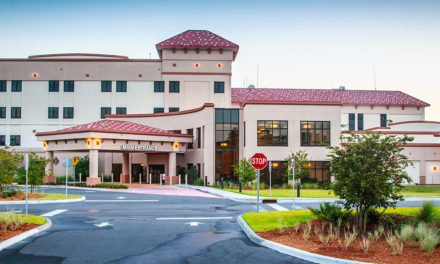Fall 2020: FCEP President’s Message
Peace. It does not mean to be in a place where there is no noise, trouble, or hard work. It means to be in the midst of those things and still be calm in your heart. – Unknown
As emergency medicine physicians, we are taught to take control. Patients come to us in need and we treat, triage, work up, and disposition them. We battle illness and injury wielding dangerous instruments and medications. We face some of our greatest professional challenges and are at the greatest risk of burnout when we experience losses of control. One of the most difficult concepts for us to embrace is the fact that most often, control is an illusion.
For years, emergency physicians have had to accommodate regulatory and billing requirements, health system C-Suite agendas, electronic health records, disease states or injuries that are beyond modern medicine’s capability to treat, changes in contracts with health systems, or even politics within our own organizations. During the last six months, there have been even more circumstances beyond our control due to changes in emergency department volumes, higher than ever before acuity levels, and politicization of COVID-19 underscored by public fear. Our resilience continues to be tested in ways we might not have ever imagined 10 years ago. However, when we take a step back, we realize that when we focus on the areas where we do not have control, we thwart the opportunity to effectuate change within our sphere of influence.
My uncle, Hugh West, is an emergency physician whose career spanned nearly 50 years. When he retired from his position as a teaching attending at UCSF, he still truly loved his chosen profession. Throughout my career, I have trusted him with some of my most difficult feelings that I didn’t think I should have at the time: fear, sadness, anger, and the worst of all—shame. We have shared stories of intellectually challenging cases, amazing catches, miraculous survivals, and indescribable tragedies. We have shared the burden of suffering together in our storytelling of cases remote and recent, taking turns when one of us felt the weight of a poor outcome weighing down our soul while the other offered comfort and reassurance.
One of the phrases my Uncle Hugh has used often throughout the years is one I challenge us to use now: “Change your headset.” What he has asked me to do from time to time is alter the tone and words I use in internal dialogue so that they do not reflect the paradigms of what others have told me I should feel or how I should respond. Removing the tracks playing in the background that are automatically triggered by previous teachings has allowed me to experience my feelings as they come and be kinder to myself. The resulting experience is the ability to relate to others more authentically.
Throughout our careers, we will have opportunities to support our colleagues by sharing our stories and hearing theirs. When we are vulnerable to each other, we help our colleagues heal as we, in turn, are healed. We are also far better able to embrace opportunities to offer healing to our patients when we allow them to be vulnerable to us. Emergency physicians are well positioned to meet all patients where they are and have genuine interactions that inspire hope.
In my opinion, this is the heart of resilience: peace. Peace that comes from accepting our lack of control, driving change within our sphere of influence, relating authentically, and experiencing the hope derived from lives lived in service to others while allowing ourselves to be healed.
Peace I leave with you; my peace I give you. I do not give to you as the world gives.
Do not let your hearts be troubled and do not be afraid. – John 14:27
This article is part of the following sections:
